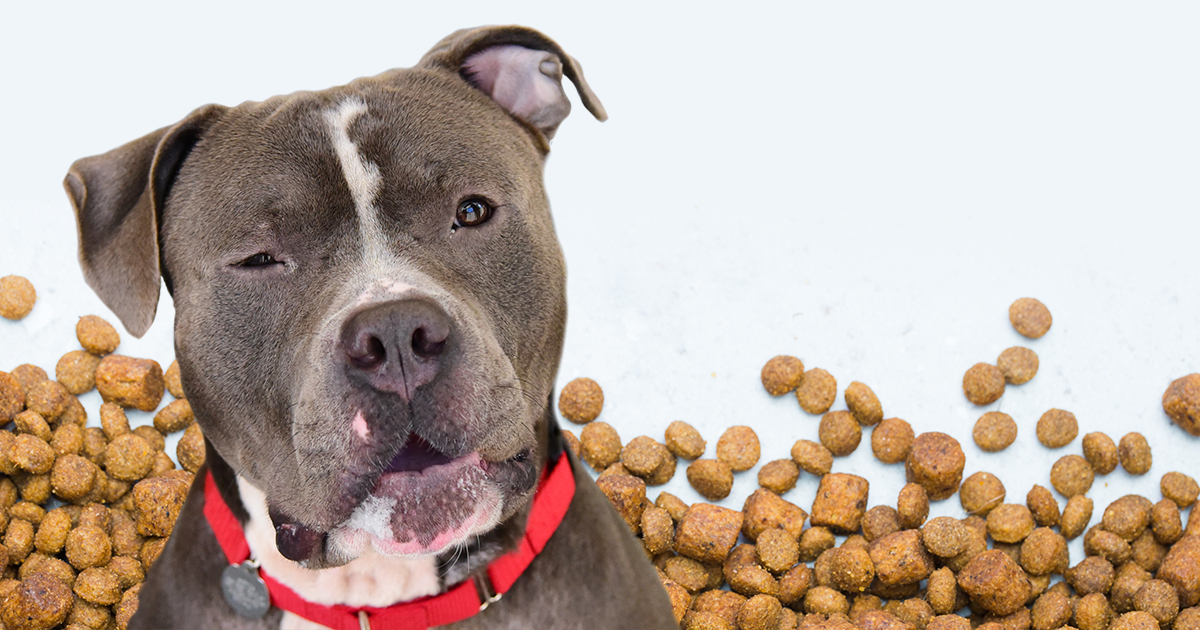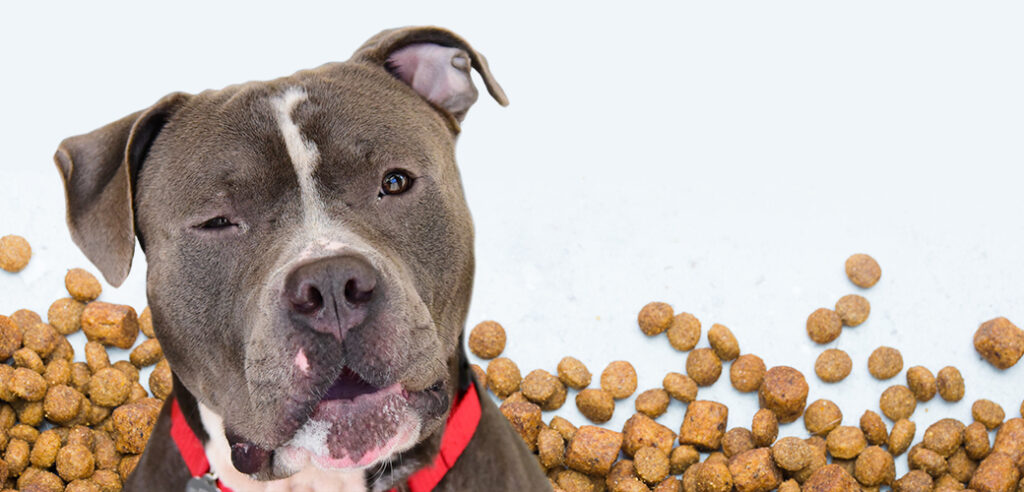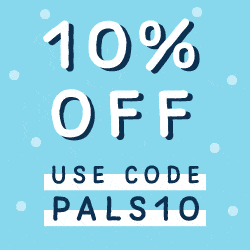Feeding your dog grain-free food can be beneficial for some dogs, particularly those with allergies or sensitivities. However, not all dogs require a grain-free diet, and some may thrive on traditional dog food.
Choosing the right diet for your dog is crucial for their overall health. Grain-free dog food has gained popularity in recent years, often marketed as a healthier option. Many pet owners believe it can prevent allergies or digestive issues. However, it's essential to understand that grains can provide valuable nutrients and energy.
Each dog has unique dietary needs based on age, breed, and health conditions. Consulting with a veterinarian can help determine the best diet for your furry friend. Balancing nutrition is vital to ensure your dog lives a long, healthy life.

Credit: www.aspca.org
Table of Contents
ToggleIntroduction To Grain-free Dog Food
Grain-free dog food has gained a lot of attention lately. Pet owners seek better diets for their furry friends. Many believe that eliminating grains can boost health. This trend raises questions about the benefits and risks.
Rise In Popularity
The rise in popularity of grain-free dog food is notable. Many factors contribute to this trend:
- Health Concerns: Some dogs show allergies to grains.
- Natural Diets: Owners prefer diets similar to dogs' ancestors.
- Marketing: Brands promote grain-free options heavily.
Sales of grain-free dog food have surged. Many pet owners see it as a healthier choice. The rise in awareness about pet nutrition fuels this demand.
Key Ingredients
Grain-free dog food features various key ingredients. These ingredients often include:
| Ingredient Type | Examples | Benefits |
|---|---|---|
| Protein Sources | Chicken, beef, fish | Supports muscle development |
| Fruits and Vegetables | Sweet potatoes, peas, blueberries | Provides vitamins and antioxidants |
| Healthy Fats | Fish oil, coconut oil | Promotes healthy skin and coat |
Owners should read labels carefully. Not all grain-free foods are equal. Quality ingredients matter for overall health.

Credit: www.drharveys.com
The Grain-free Debate
The grain-free diet for dogs sparks much discussion among pet owners. Some believe it promotes better health. Others worry it may lead to nutritional deficiencies. Understanding the pros and cons helps you make informed choices.
Pros Of Grain-free Diets
- Improved Digestion: Many dogs digest grain-free foods better.
- Allergy Relief: Grain-free diets may help reduce allergy symptoms.
- Shinier Coat: Some owners report healthier skin and fur.
- Weight Management: Grain-free foods can help control weight.
Cons Of Grain-free Diets
- Potential Nutritional Gaps: Missing grains may lead to deficiencies.
- Heart Issues: Studies link grain-free diets to heart disease.
- Cost: Grain-free foods often cost more than regular options.
- Limited Choices: Fewer brands offer grain-free options.
| Aspect | Grain-Free Diet | Traditional Diet |
|---|---|---|
| Digestibility | Often easier to digest | May cause issues in some dogs |
| Health Benefits | Possible allergy relief | Well-balanced nutrition |
| Cost | Generally more expensive | Usually more affordable |
Nutritional Needs Of Dogs
Understanding your dog's nutritional needs is essential for their health. Dogs require a balanced diet. This diet includes proteins, fats, carbohydrates, vitamins, and minerals. Each component plays a vital role in their overall well-being.
Understanding Canine Nutrition
Canine nutrition focuses on providing the right balance of nutrients. Dogs are omnivores. They can digest both animal and plant-based foods. Key nutrients for dogs include:
- Proteins: Build and repair tissues.
- Fats: Provide energy and support cell structure.
- Carbohydrates: Offer quick energy and aid digestion.
- Vitamins: Essential for various bodily functions.
- Minerals: Important for bone health and metabolic processes.
Each dog is unique. Factors like age, breed, and activity level affect their needs.
Role Of Grains In A Dog's Diet
Grains can be a valuable part of a dog's diet. They offer essential nutrients and energy. Common grains found in dog food include:
| Grain | Nutritional Benefit |
|---|---|
| Brown Rice | Rich in fiber and easy to digest. |
| Oats | Good source of vitamins and minerals. |
| Barley | High in fiber and helps maintain a healthy gut. |
| Quinoa | Contains protein and essential amino acids. |
Grains can help provide energy and support digestion. Some dogs thrive on grain-free diets. Others benefit from the nutrients grains provide.
Consult a veterinarian to determine the best diet for your dog. Their specific health needs should guide your choices.

Credit: www.animalbehaviorcollege.com
Health Concerns And Benefits
Choosing the right dog food can be challenging. Grain-free options have gained popularity. Owners often wonder about the health effects. Understanding the benefits and concerns can help make informed choices.
Allergies And Sensitivities
Some dogs may have allergies to grains. Common grains include wheat, corn, and soy. Symptoms of grain allergies include:
- Itchy skin
- Ear infections
- Digestive issues
Grain-free food can reduce these symptoms. It substitutes grains with proteins and vegetables. Always consult a vet before changing your dog's diet.
Impact On Digestive Health
The digestive health of dogs varies. Some dogs thrive on grain-free diets. Others may struggle with these changes. Key points to consider include:
| Aspect | Grain-Free Benefits | Potential Concerns |
|---|---|---|
| Fiber Content | Higher fiber from vegetables | Lower fiber if poorly formulated |
| Protein Source | More meat and fish options | Possible excess protein |
| Overall Digestion | May improve digestion for some | Can lead to digestive upset in others |
Monitor your dog’s response closely. Adjust their diet based on their needs. Always prioritize balanced nutrition for optimal health.
The Fda Warning On Grain-free Food
The FDA has issued a warning regarding grain-free dog food. This warning raises concerns about potential health risks. Many pet owners are confused about the safety of these diets. Understanding the FDA's findings is crucial for your dog's health.
Link To Canine Heart Disease
Research links grain-free diets to canine dilated cardiomyopathy (DCM). This serious heart condition affects certain dog breeds. Breeds at risk include:
- Golden Retrievers
- Boxers
- Doberman Pinschers
- Great Danes
Symptoms of DCM include:
- Fatigue
- Shortness of breath
- Swollen abdomen
Always consult a veterinarian if you notice these signs.
Current Research Findings
Ongoing research examines the link between grain-free diets and heart disease. The FDA reports cases of DCM in dogs eating these foods. The studies focus on ingredients, especially peas, lentils, and potatoes.
Key findings include:
| Ingredient Type | Potential Risk |
|---|---|
| Peas | Linked to heart issues |
| Lentils | Possible DCM connection |
| Potatoes | Under investigation |
Pet owners must stay informed about these findings. Consult your vet for tailored advice on your dog's diet.
Choosing The Right Food For Your Dog
Finding the best food for your dog is essential. Dogs have different needs based on their age, size, and health. Grain-free foods are popular, but they may not be suitable for every dog. Understanding your dog's specific requirements helps in making the right choice.
Factors To Consider
When selecting dog food, consider the following factors:
- Age: Puppies need different nutrients than adults.
- Size: Large breeds have unique dietary needs compared to small breeds.
- Health Conditions: Some dogs may have allergies or sensitivities.
- Activity Level: Active dogs require more calories and nutrients.
| Factor | Consideration |
|---|---|
| Age | Puppy, Adult, Senior |
| Size | Small, Medium, Large |
| Health Conditions | Allergies, Diabetes, Weight Issues |
| Activity Level | Low, Moderate, High |
Consulting With A Veterinarian
Always consult with a veterinarian before changing your dog's diet. A vet can help you understand your dog's specific needs. They can recommend the best food options based on health conditions and lifestyle.
Consider these points during the consultation:
- Discuss your dog's current health status.
- Ask about any food allergies or sensitivities.
- Request recommendations for high-quality dog food brands.
- Inquire about the benefits of grain-free diets.
Your dog's diet plays a significant role in their overall health. Make informed choices to keep your furry friend happy and healthy.
Alternatives To Grain-free Diets
Many dog owners explore alternatives to grain-free diets. Grains can offer important nutrients. Choosing the right food is crucial for your dog's health.
Balanced Diets With Grains
A balanced diet includes grains and protein sources. Grains provide fiber and energy. Here are some common grains suitable for dogs:
- Brown rice – Easy to digest and rich in fiber.
- Oats – Great source of vitamins and minerals.
- Quinoa – A complete protein with essential amino acids.
- Barley – Supports healthy digestion.
Choose high-quality dog foods containing these grains. Check labels for whole grains. Avoid foods with fillers or artificial ingredients.
Homemade Dog Food Options
Homemade dog food can be a healthy alternative. It allows you to control ingredients. Here are some simple recipes:
- Chicken and Rice:
- 1 cup cooked chicken, shredded
- 1 cup brown rice, cooked
- 1 cup carrots, chopped
- Beef and Vegetable Stew:
- 1 pound ground beef, cooked
- 2 cups sweet potatoes, diced
- 1 cup peas
- Fish and Quinoa:
- 1 cup cooked salmon, flaked
- 1 cup quinoa, cooked
- 1 cup spinach, chopped
Always consult a vet before changing your dog's diet. Ensure the meals are balanced and meet your dog's needs.
Real Stories: Owners' Experiences
Dog owners share their journeys with grain-free food. They provide insights on benefits and challenges. Real-life stories help others make informed choices.
Success Stories
Many owners report positive changes after switching to grain-free diets.
- Improved Energy Levels: Dogs became more active and playful.
- Healthier Skin: Allergies and itching reduced significantly.
- Better Digestion: Owners noted firmer stools and less gas.
Here are a few success stories:
| Owner | Dog's Name | Change Observed |
|---|---|---|
| Sarah | Buddy | More energy and better coat |
| Mike | Rex | Reduced itching and allergies |
| Linda | Lucy | Improved digestion and stool quality |
Cautionary Tales
Some owners faced issues after switching to grain-free food.
- Heart Concerns: A few dogs developed heart problems.
- Weight Gain: Some dogs became overweight on grain-free diets.
- Digestive Issues: A few experienced diarrhea or upset stomachs.
Here are cautionary tales from dog owners:
- James: His dog, Max, gained weight and struggled with energy.
- Emma: Bella developed heart issues after a grain-free diet.
- Tom: Charlie faced digestive problems and discomfort.
Frequently Asked Questions
Should I Choose Grain-free Food For My Dog?
Choosing grain-free food for your dog depends on their health needs. Some dogs may benefit from a grain-free diet, especially if they have allergies or sensitivities. However, many dogs thrive on traditional diets that include grains. Consult your veterinarian to determine the best option for your pet.
What Are The Benefits Of Grain-free Dog Food?
Grain-free dog food can offer several benefits. It often contains higher protein levels and fewer carbohydrates. This can be beneficial for dogs with food sensitivities. Additionally, it may help improve skin and coat health. Always check with your vet before switching to grain-free options.
Are There Risks With Grain-free Dog Food?
Yes, there are potential risks associated with grain-free dog food. Some studies link grain-free diets to canine dilated cardiomyopathy (DCM). Additionally, these diets may lack essential nutrients. It's crucial to choose high-quality brands and consult your veterinarian for guidance on your dog's diet.
How Do I Know If My Dog Needs Grain-free Food?
Look for signs like gastrointestinal issues or skin allergies. If your dog frequently experiences upset stomachs or itchy skin, grain-free food may help. However, always consult your veterinarian to rule out other health problems. They can provide tailored advice based on your dog’s specific needs.
Conclusion
Choosing the right food for your dog is crucial for their health. Grain-free diets can benefit some dogs, but they aren’t for everyone. Always consult your veterinarian before making changes to your dog's diet. Ultimately, a balanced diet tailored to your dog's needs will ensure they thrive and stay healthy.



















